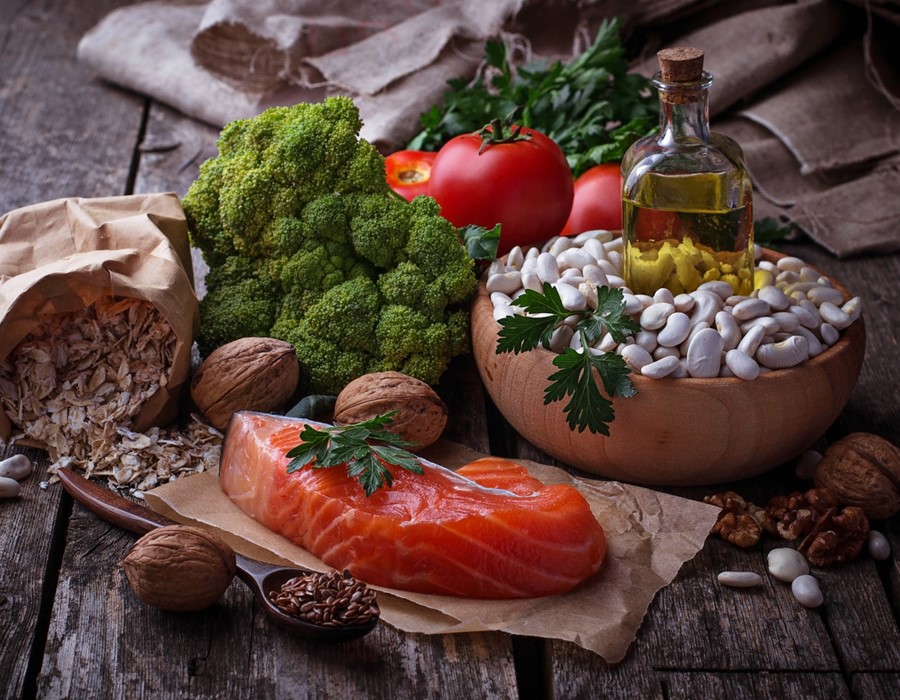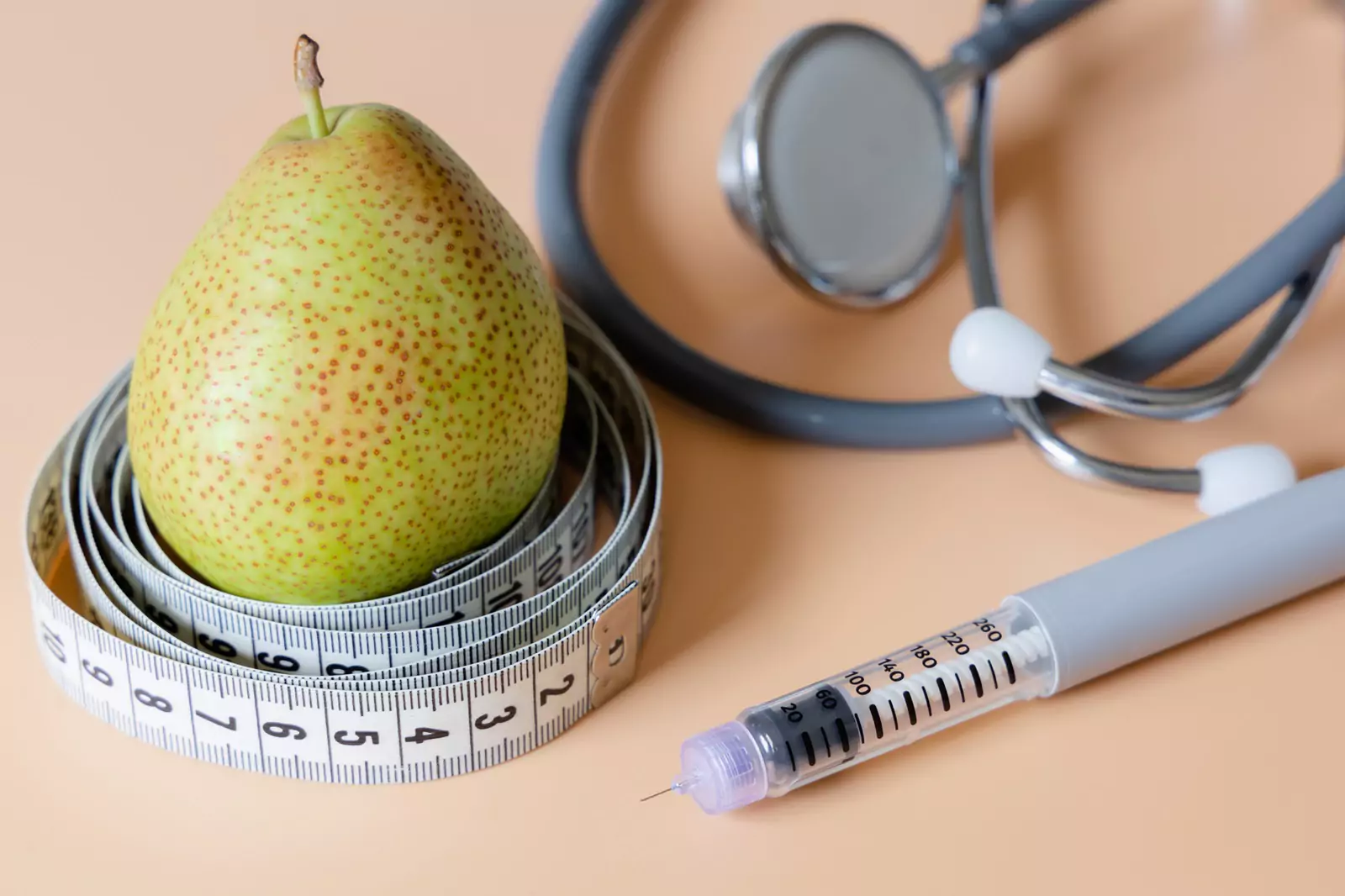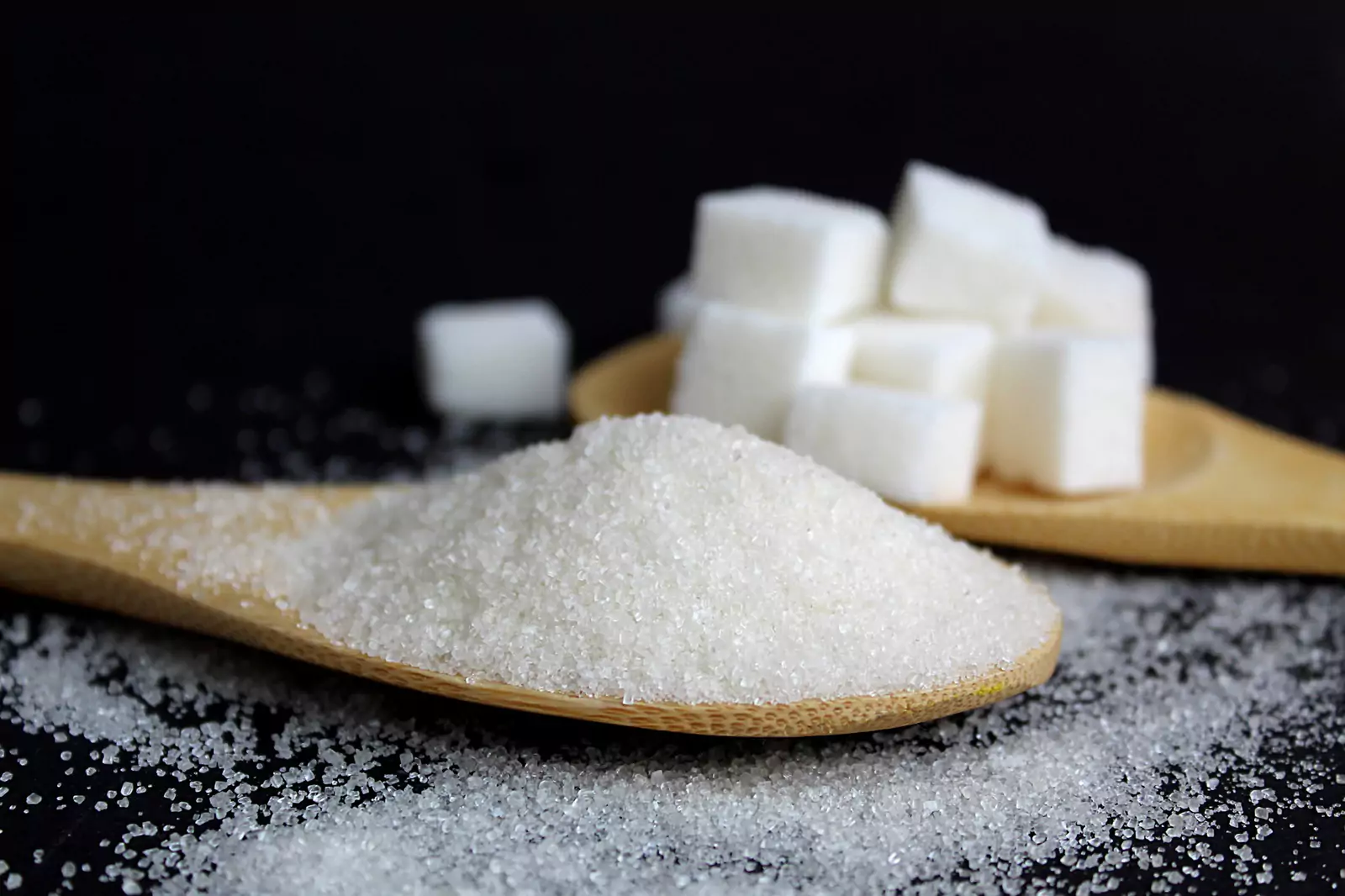
UP TO 40% OFF SITEWIDE






Is Broccoli Good For Diabetics?


Table of Contents
- Nutritional Facts for Broccoli
- What Are The Benefits Of Eating Broccoli For Diabetics?
- Improved Heart Health
- Lower Blood Pressure
- Lower your Blood Pressure with SugarMDs New and Improved Formula
- How does Broccoli help Diabetes?
- Ways to Enjoy Broccoli More (Recipes)
- Can Broccoli Help Your Blood Sugar?
- Conclusion
- About The Author
Are you a diabetic trying to improve your health? If so, you may be wondering if broccoli is an appropriate food to include in your diet. While the answer is yes, it's important to understand the specific nutritional facts and benefits of eating broccoli for diabetics.
In this article, we'll discuss how broccoli can help with diabetes and provide some tasty recipes for incorporating it into your diet. So, let's get started with exploring what makes broccoli good for diabetics.
Nutritional Facts for Broccoli
When it comes to dietary considerations for managing diabetes, broccoli should be at the top of the list! Broccoli is an excellent source of vitamins, minerals, and dietary fiber, which can help manage both blood sugar and cholesterol levels. In terms of macronutrients, broccoli is primarily composed of carbohydrates, with 6.5g of carbohydrates and 2.6g of dietary fiber per 100g serving.
The carbohydrates in broccoli are complex, meaning they are either starch or dietary fiber. Since complex carbohydrates take longer to digest, they can help reduce the spike in blood sugar that can occur after a meal. When it comes to vitamins and minerals, broccoli has plenty to offer. It contains Vitamins A, C, K, and B6, as well as folate and iron. This makes it a great choice for those looking to manage their diabetes by supplying their body with essential micronutrients.
Broccoli is also an excellent source of chromium, a mineral that helps the body use insulin more effectively. Studies have shown that chromium can help improve glucose tolerance in Type 2 diabetics, as well as reduce levels of low-density lipoprotein (LDL or “bad” cholesterol). Know more about bad cholesterol here:
Finally, broccoli is full of antioxidants, which can help reduce oxidative stress and damage to cells in the body. This could help reduce the risk of long-term complications associated with diabetes. But what about broccoli rabe? Broccoli rabe is in the same family as broccoli but with a slightly different nutrient profile. While broccoli rabe has lower amounts of vitamins A and C, it has higher levels of fiber, magnesium, and potassium.
It also contains lutein, which is an important antioxidant that can help protect against eye damage. All in all, both broccoli and broccoli rabe offer a range of important nutrients that can help diabetics get the vitamins, minerals, and dietary fiber they need to manage their condition. So make sure to include them in your diet for optimal health!
What Are The Benefits Of Eating Broccoli For Diabetics?
Broccoli is a powerhouse of beneficial nutrients and components that can help with diabetes management. When it comes to type 1 diabetes, research has found that broccoli and other cruciferous vegetables can help regulate blood sugar levels, protect against inflammation, and reduce some diabetes-related complications, such as heart disease.
In addition, broccoli and broccoli rabe contain polyphenols, antioxidants, and vitamin C, which can all help with diabetic health. Broccoli is also an excellent source of dietary fiber and contains a compound called alpha-lipoic acid, which has been found to have beneficial effects on insulin sensitivity and blood sugar management. Consuming broccoli can help to reduce the risk of developing complications associated with diabetes such as heart disease, stroke, and kidney disease.
Furthermore, broccoli is low in calories and can help to keep a person feeling full longer, which can be beneficial for diabetics trying to maintain a healthy weight. Studies have also shown that eating broccoli and other cruciferous vegetables can reduce inflammation and oxidative stress, which are both linked to diabetes.
In addition, broccoli and rabe are both excellent sources of vitamins and minerals, including potassium, magnesium, and zinc, all of which are important for diabetes management. Finally, broccoli could potentially help reduce the risk of developing type 2 diabetes, as it is known to reduce insulin resistance.
When it comes to incorporating broccoli and broccoli rabe into a diabetic diet, it’s important to be mindful of how much you’re consuming. Eating more than three servings a week is recommended, as this can help to ensure you’re receiving the maximum health benefits. It’s also important to note that broccoli should be cooked or steamed, as this helps to preserve its nutrient content.
Improved Heart Health
Broccoli is an excellent source of numerous vitamins, minerals, and antioxidants, which may help reduce inflammation, high blood pressure, and cholesterol levels, both of which can contribute to improved heart health. Specifically, broccoli contains vitamin K, potassium, folate, vitamin C, and fiber. It is also a good source of omega-3 fatty acids, which are essential for a healthy heart. Furthermore, broccoli on a regular basis may help to reduce the risk of developing type 2 diabetes and cardiovascular disease.
In addition, broccoli is a type of cruciferous vegetable, that has been linked to lower levels of inflammation, a risk factor for cardiovascular disease.
Finally, broccoli rabe is a type of broccoli related to the cruciferous vegetable family that may also confer heart health benefits. Broccoli rabe is likely to have similar health benefits as broccoli and may have additional advantages, such as the potential to reduce risk factors for diabetes, including glucose levels and metabolic syndrome.
Therefore, adding broccoli rabe to your diet may offer additional health benefits. Overall, consuming broccoli and broccoli rabe may be beneficial for improving heart health and reducing the risk of developing type 2 diabetes. However, it is important to note that eating a balanced diet and engaging in regular physical activity are still the most important steps to improving your heart health.
Lower Blood Pressure
For diabetics, broccoli can help to lower blood pressure and improve cholesterol levels, making it an ideal food for keeping diabetes under control. First, let's start by looking at how broccoli can help lower blood pressure. Studies have shown that broccoli contains a compound called sulforaphane, which helps to regulate blood pressure.
This compound works by inhibiting an enzyme called angiotensin-converting enzyme, or ACE. When ACE is inhibited, the body produces more of a hormone called angiotensin II, which helps to regulate blood pressure.
By including more broccoli in your diet, you can help regulate your blood pressure and keep diabetes under control. Next, let's look at how broccoli can help improve cholesterol levels.
One of the main benefits of eating broccoli is that it is high in fiber and antioxidants, both of which can help to reduce cholesterol levels. Fiber helps to reduce cholesterol by binding bile acids and removing them from the body. Antioxidants help to reduce cholesterol levels by blocking the oxidation of LDL cholesterol.
By eating more broccoli, you can help to reduce cholesterol levels, which can help keep diabetes in check. Last, let's look at the question of whether broccoli rabe is good for diabetics.
Unfortunately, the answer to this question isn't so clear-cut. While broccoli rabe does contain some of the same beneficial compounds as regular broccoli, it also contains a much higher amount of oxalates, which can potentially interfere with the absorption of minerals like calcium, magnesium, and zinc.
If you're a diabetic, it may be best to limit your intake of broccoli rabe to every once in a while, or to opt for other sources of greens that don't contain high amounts of oxalates, such as kale or spinach. Ultimately, broccoli can be an incredibly valuable food for diabetics.
It can help to lower blood pressure and improve cholesterol levels, both of which are important factors in helping to keep diabetes in check. If you are looking to add more broccoli to your diet, try to opt for fresh or frozen broccoli, and limit your intake of broccoli rabe.
Lower your Blood Pressure with SugarMDs New and Improved Formula
SugarMD Blood Pressure Support is a top-performing, all-natural herbal supplement designed to quickly promote healthy blood pressure levels. The formula features a powerful blend of herbs with a proven track record in Eastern medicine for supporting cardiovascular health and maintaining healthy blood pressure levels.
Carefully selected and expertly combined in optimal doses, these herbs work together to reduce inflammation, enhance circulation, and overall boost cardiovascular health, resulting in normal and healthy blood pressure without any harmful side effects.
How does Broccoli help Diabetes?
When it comes to managing diabetes, it’s important to choose the right foods to help keep your blood sugar in check – broccoli is an excellent choice for diabetics because of its nutrient profile. It is a great source of fiber and protein. The fiber content helps slow down digestion, which can help regulate blood sugar levels. It also helps you feel fuller for longer, so you’re less likely to overeat or snack excessively.
Broccoli also contains a variety of vitamins and minerals, including vitamin C, folate, and potassium. Vitamin C helps support the immune system and can help protect cells from damage caused by free radicals. Folate helps convert carbohydrates into energy and can also help regulate blood sugar levels. Potassium helps to reduce the risk of hypertension, which is a common complication of diabetes.
Not only is broccoli good for diabetes, but it can also help to reduce the risk of other chronic diseases. It is a great source of antioxidants, which help to protect cells from damage. Additionally, broccoli contains glucoraphanin, which can help to reduce inflammation and improve heart health. Another great option for diabetics is broccoli rabe. This leafy green vegetable is packed with nutrients and can help to control blood sugar levels. It is also a great source of fiber, which aids in digestion and helps you feel fuller for longer.
Additionally, broccoli rabe contains lutein and zeaxanthin, two powerful antioxidants that can help to protect against age-related vision loss. In conclusion, broccoli is an incredibly nutritious vegetable that can be a great addition to any diabetic’s diet. Not only is it a great source of fiber, vitamins, minerals, and antioxidants, but it can also help to reduce the risk of chronic diseases like heart disease and vision loss.
Additionally, broccoli rabe can also be a great choice for diabetics, as it is packed with essential nutrients that can help regulate blood sugar levels and protect against age-related vision loss.
Ways to Enjoy Broccoli More (Recipes)
One of the simplest ways to enjoy broccoli is simply roasting it in the oven. Preheat the oven to 350 degrees Fahrenheit and cut the broccoli into bite-sized pieces. Place the broccoli on a baking sheet, season with salt and pepper, and add a few tablespoons of olive oil. Roast for 15 minutes, stirring the broccoli halfway through. Sprinkle with Parmesan cheese for an extra flavor boost.
If you're looking for a dish with more of a punch, garlic-lemon broccoli is a fantastic option. Heat a few tablespoons of olive oil in a skillet over medium-high heat. Add four or five cloves of minced garlic and sauté until lightly browned. Add the broccoli and cook, stirring occasionally, for four to five minutes. Add one-fourth cup of water and cook until the broccoli is tender, about two minutes.
Finish by stirring in the juice of one small lemon and season with salt and pepper to taste. Broccoli rabe (or rapini) is another nutritious option that can add flavor to your meals. It's a bit more bitter than regular broccoli but still packed with vitamins and minerals. To prepare it, bring a large pot of salted water to a boil. Add the broccoli rabe and blanch for one to two minutes.
Immediately transfer to a bowl of ice water to stop the cooking. When it's cool, drain and pat dry. Heat a few tablespoons of olive oil in a skillet and add the broccoli rabe. Cook for three to four minutes, stirring occasionally.
Season with salt and pepper and enjoy! With a little bit of creativity, broccoli can be a delicious and nutritious choice for diabetics. Adding more of it to your diet can help you reach your health goals – so don't be afraid to try these recipes and get creative with your own.
Can Broccoli Help Your Blood Sugar?
The answer to that question is yes! Research has shown that broccoli can be beneficial for diabetes, specifically Type 2 diabetes. A study found that adults with Type 2 diabetes who ate broccoli at least twice a week had better glycemic control than adults who ate it less often. This suggests that regular consumption of broccoli can help manage blood sugar levels and lower the risk of diabetes-related complications. And it turns out that broccoli rabe is also beneficial for diabetics.
According to a study published in the journal Nutrition and Metabolism, adults with Type 2 diabetes who consumed broccoli rabe had significantly lower fasting glucose levels than those who didn't. The research also found that broccoli rabe consumption was linked with lower cholesterol and triglyceride levels, which is important for those with diabetes since high levels of those substances can increase the risk of heart disease.
In addition to helping manage blood sugar levels, eating broccoli may also help reduce the risk of developing diabetes in the first place. A large study published in the journal Diabetes Care found that adults who ate broccoli at least three times a week were 18 percent less likely to develop Type 2 diabetes compared to those who didn't.
Overall, broccoli and broccoli rabe are great options for people with diabetes. Eating them regularly may help improve blood sugar management and reduce the risk of diabetes-related complications. So next time you’re making a meal, consider adding some broccoli or broccoli rabe to the mix!
Conclusion
It’s clear that broccoli can offer numerous benefits to diabetics. It is packed with essential vitamins and minerals and helps with improved blood sugar regulation, heart health, and decreased blood pressure levels. Additionally, by adding more fiber to your diet through broccoli, you can help your body manage diabetes better. It is also easy to add broccoli to your diet.
Try roasting it in the oven with some olive oil, garlic, and sea salt, or adding it to your favorite stir-fry recipe. With these delicious recipes, you’ll forget you’re even eating broccoli! All in all, adding broccoli to your diet is a great way to help manage diabetes. While broccoli may not be a cure-all, incorporating it into your diet is certainly beneficial. So, if you’re looking for a nutritious way to help manage your diabetes, make sure to add broccoli to the list!
About The Author
Meet Dr. Ahmet Ergin a highly skilled and dedicated endocrinologist with a passion for diabetes care. Dr. Ergin's journey in the medical field began with earning his medical degree with honors from Marmara University School of Medicine in Istanbul Turkey. He then went on to complete his internal medicine residency and endocrinology fellowship at Cleveland Clinic one of the top medical centers in the United States located in Cleveland Ohio.
With a wealth of knowledge and experience in his field, Dr. Ergin is board-certified in Internal Medicine Endocrinology Diabetes, and Metabolism making him a respected and highly qualified physician. He is also a certified diabetes education specialist author of the book "The Ultimate Diabetes Book" and the founder of the SugarMD YouTube channel where he shares valuable insights and information on diabetes management and care.
Currently, Dr. Ergin practices in Port Saint Lucie FL where he provides exceptional care to his patients and helps them to effectively manage their diabetes. It is important to note that the information on diseases and treatments provided on this website is for general guidance only and should never be considered a substitute for the advice provided by a qualified healthcare professional. Always seek the advice of your physician health provider or other qualified healthcare professional with any questions you may have regarding your health.
Written By Dr. Ahmet Ergin
466 total articles
Meet Dr. Ahmet Ergin, a highly skilled and dedicated endocrinologist with a passion for diabetes care. Dr. Ergin earned his medical degree with honors from Marmara University in Istanbul. He completed internal medicine residency and endocrinology fellowship at Cleveland Clinic. Dr. Ergin is board-certified in Internal Medicine, Endocrinology, Diabetes, and Metabolism due to his vast medical expertise. He's a certified diabetes educator, author of “The Ultimate Diabetes Book,” and founder of “the SugarMD YouTube channel.” Dr. Ergin offers exceptional diabetes care to his patients in Port Saint Lucie, FL, helping them manage effectively. For a closer look into his insights and experiences, connect with Dr. Ahmet Ergin on LinkedIn, Instagram, and YouTube.”
Disclaimer: These statements have not been evaluated by the Food and Drug Administration. Information on this website isn't intended to treat, cure or prevent any disease. Discuss with your doctor and do not self-treat.
Products













